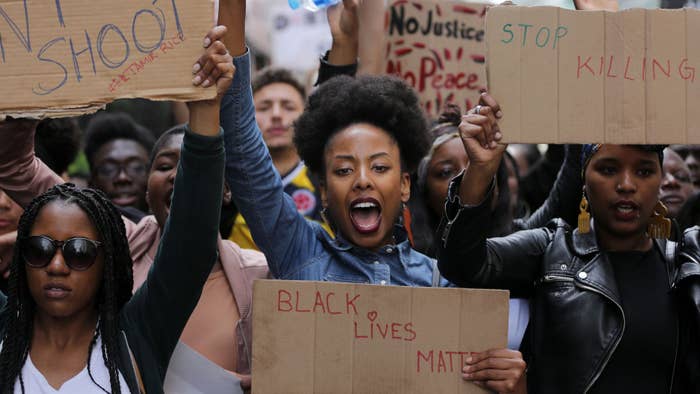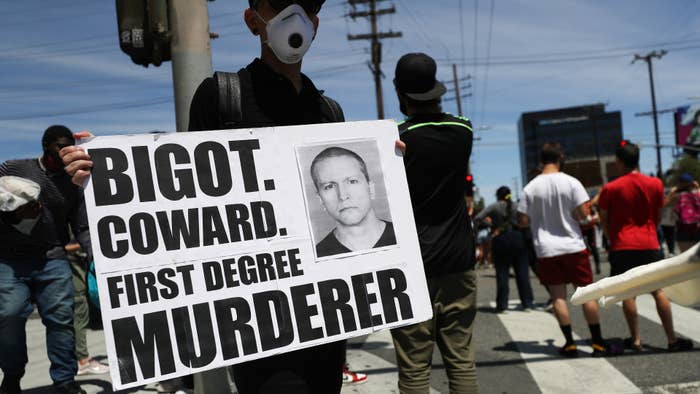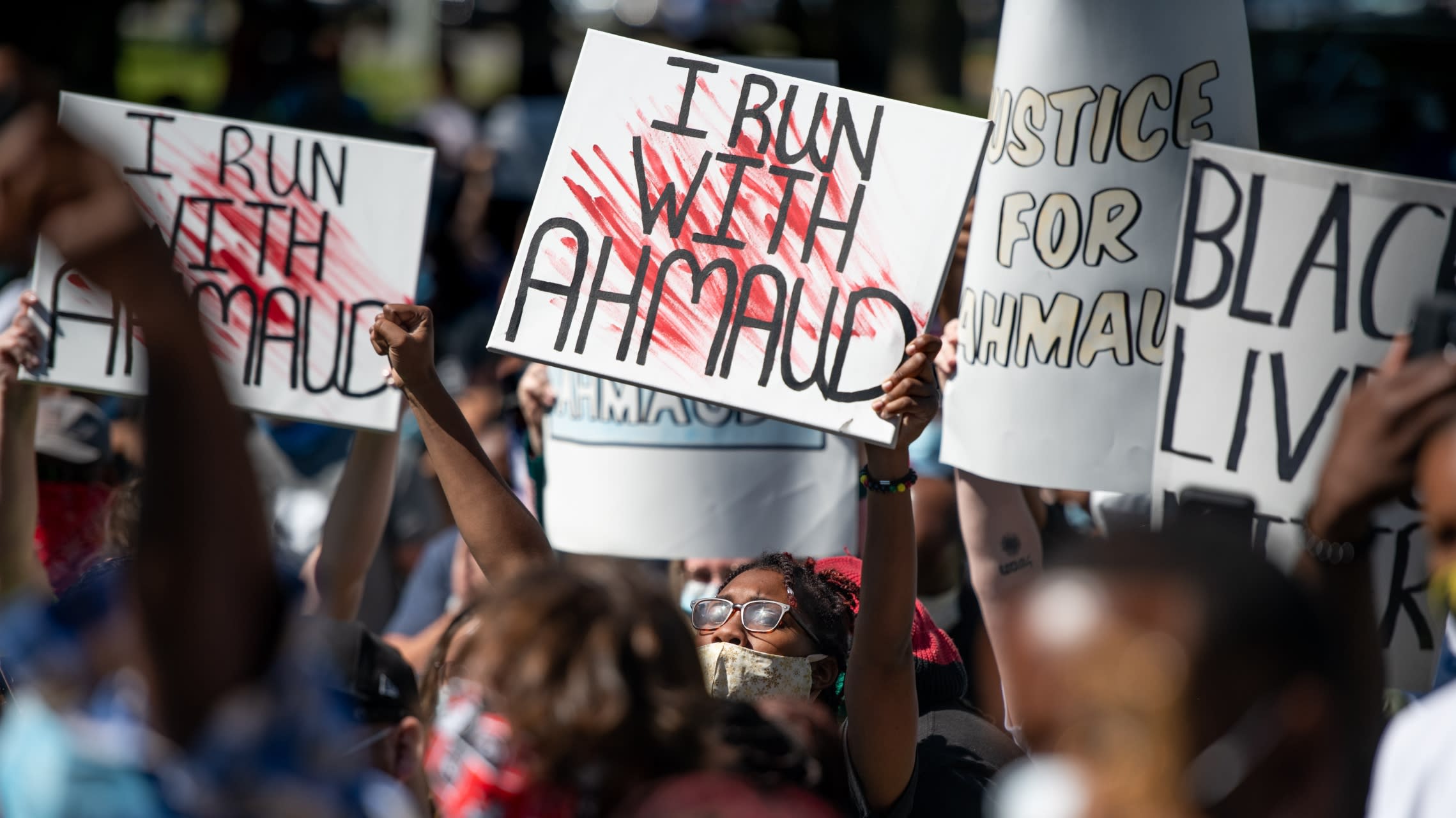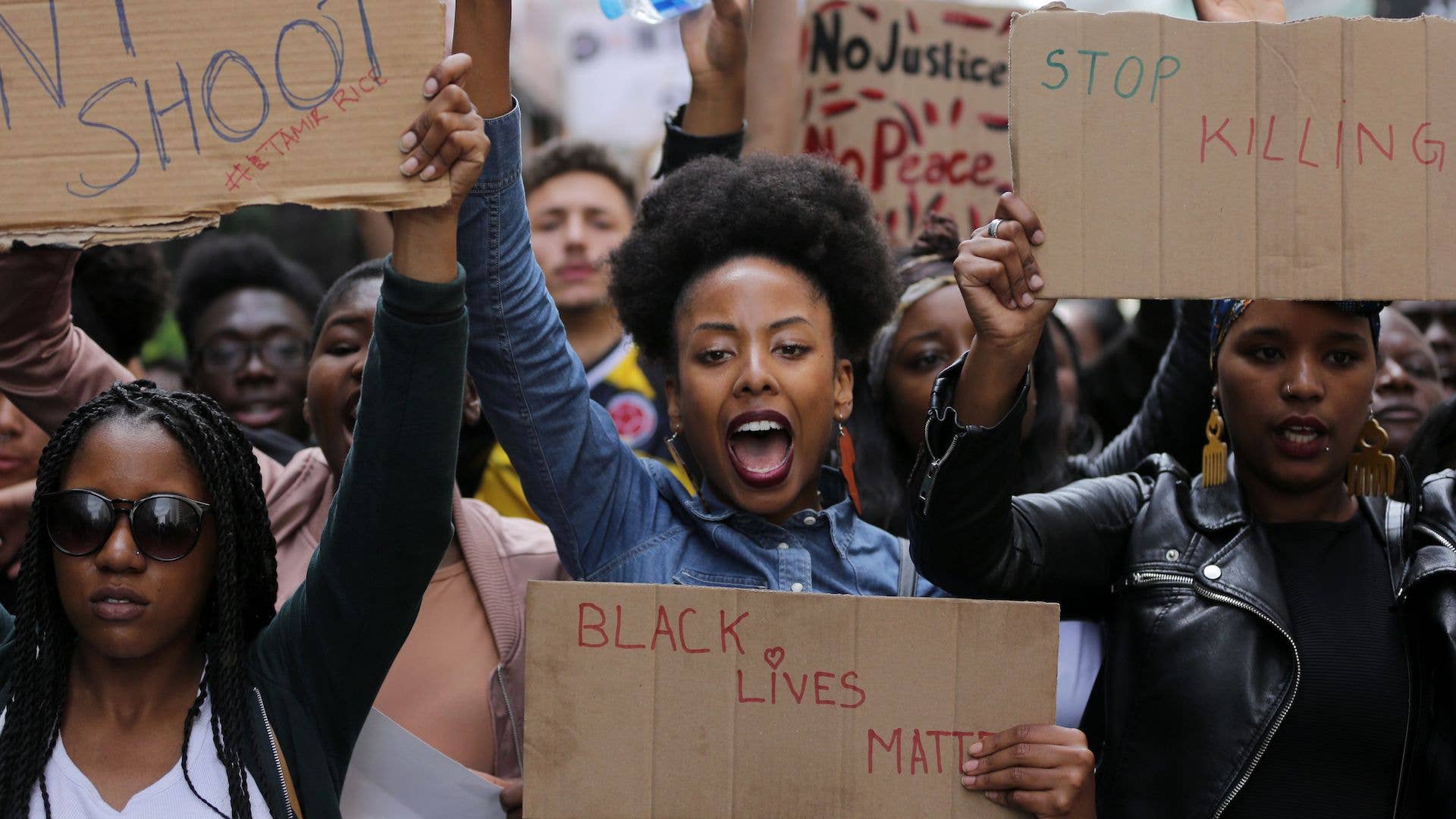
The resounding cry was that “George Floyd changed the world” after Derek Chauvin was convicted of murdering him last Tuesday. But it was a hopeful plea that the ensuing week of police violence has disproven. Cops fatally shot at least six people in the 24 hours after the verdict, and for many, their legal process will be just as anxiety-inducing as what happened in Minnesota.
At the same time that some were expressing relief over Chauvin’s conviction, news broke that 16-year-old Ma’Kiah Bryant was shot by police in Columbus, Ohio—after calling them for help. A day later a Spotsylvania, Virginia cop shot 32-year-old Isaiah Brown, who he had just given a to ride an hour earlier, and Pasquotank County sheriff’s deputies in North Carolina fatally shot 42-year-old Andrew Brown Jr.
Chauvin’s conviction didn’t change anything about the state of policing, even if Nancy Pelosi tried to postulate such. The Speaker of the House thanked Floyd for “sacrificing” his life for change the night of the verdict, which was a damning choice of words for a Democrat whose peers have shown little indication that they see Black people as anything but votes to tally and bodies to capitalize off of.
Black people’s fight against white supremacy has been defined by the state’s propensity to martyrize the people it’s killed. Black people are pressured to vote because “Black people died for the right to vote.” They tell us about the civil rights leaders who “died for our civil rights.” Martin Luther King Jr. has a day of observance which was enacted by the same system that viewed him as a dissenter in life. And now politicians want us to thank Black people killed by police for subsequent police reforms that they could have enacted before those very lives were lost.
Anyone who’s died at the hands of the state should be memorialized. But these people didn’t die by suicide for the sake of public policy; people like Emmett Till, Breonna Taylor, and George Floyd were killed by officials of the state and racists who resented the idea of equality. Politicians like Pelosi project the fallacy of “sacrifices” for the state because flipping the pendulum would expose the insolvency of the system and force them to acknowledge a cold truth: For Black people, life is the cost of so-called justice.

The Chauvin verdict was celebrated by many onlookers out of sheer surprise. Conventional wisdom is that being convicted for murdering someone on camera should be a simple 1:1. But cops are rarely convicted or even indicted for their murders of Black people—a stain on the system. Chauvin was reportedly just the second cop convicted in an on-duty death case in Minnesota history. Philip Stinson of The Henry A. Wallace Police Crime Database has found that only “five non-federal law enforcement officers were convicted of murder in an on-duty shooting and not had the conviction later overturned between 2005.” Floyd’s May 2020 murder was the sixth. Chauvin being held accountable for his crime was so relieving that it felt like an affirmation of justice for his family and those who advocated for him.
Tamika Palmer, mother of Breonna Taylor, said she “thanked God” for Chauvin being convicted at a Louisville “Black Unity March.” But she refused to accept the notion that the verdict changed the state of American policing, asking, “What are you gonna do to keep [guilty verdicts for cops like Chauvin] happening? Because that’s just one incident, and it’s still so much work to do.”
The demand from Palmer and so many more is simple: The state needs to make public policy a matter of proactively protecting life instead of reacting to death. That starts with acknowledging Black people’s humanity—not just our labor or outrage.
Brett Hankison, the Kentucky cop who killed Taylor, was charged with shooting into the neighboring home of a white family, but not for her death (or for bullets shot into the home of a Black family above Taylor). Apparently the home (and its white residents) mattered more than Taylor’s life. Similarly, Pelosi calling Floyd a “sacrifice” is another disheartening dehumanization. More than a “sacrifice,” or a “hero,” he should simply be alive.
Black people’s fight against white supremacy has been defined by the state’s propensity to martyrize the people it’s killed.
Nowadays, the very nature of Black existence is a quandary. Headlines make us ponder how much whiteness acknowledges us beyond being resources, labor, entertainment, and martyrs on a daily basis. Afropessimism writer Frank P. Wilderson theorized in The Occupied Times that, “human Life is dependent on Black death for its existence and for its conceptual coherence.”
Too few Black activists have stayed alive to see the change they were stumping for. There were numerous uprisings at plantations before the Emancipation Proclamation. Before the 1965 Voting Rights Act, Southerners George and Herbert Lee (no relation) were killed in 1955 and 1961 for urging their fellow Black people to register to vote. Civil rights activist Medgar Evers was an integration advocate who was assassinated in his home one year before the 1964 Civil Rights Act. Several people were killed at last summer’s anti-police demonstrations. Breonna Taylor wasn’t an activist that we know of, but her death spurred Breonna’s Law, which bans no-knock search warrants in Virginia (not even the state where she lived). History indicates that Black people expecting and demanding major reforms from this system have to wonder how many more Black people will be killed before that happens.

The hope is that the sheer weight of Black death will slow the empire to a halt. But the unsettling reality is that our continued death feels more akin to coals being thrown into a furnace, fueling the empire as our physical form dissolves into a cloud of posthumous reverie. This is why so many leftists are demanding a hard reset via defunding the police and abolishing oppressive machinations of the state that subsist on our death. Expecting the system to condemn itself is fruitless. Celebrating judges who feed the prison industrial complex is stomach-churning. Watching opportunistic politicians only acknowledge humanity in death is infuriating.
Chauvin’s incarceration isn’t a means for celebration, nor is it justice. There can be no justice for Floyd or anyone no longer here, even if the politicians who failed them in life deify them in death. The sigh of relief some expressed last week was quickly interrupted by cries after Ma’Khia Bryant’s shooting. As much as some people may want the Chauvin verdict to be a turning point for police violence, the reality is that change won’t come until we’re no longer led by politicians lying to us and manipulating our legacy.

